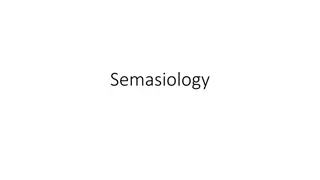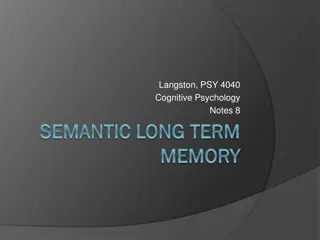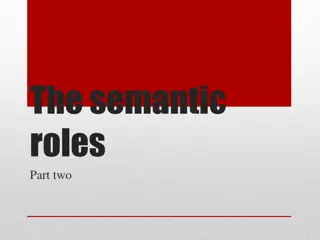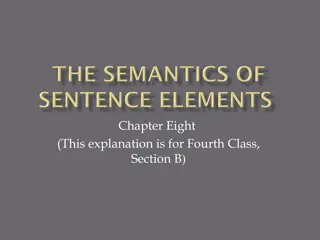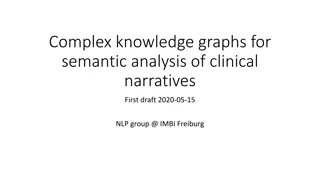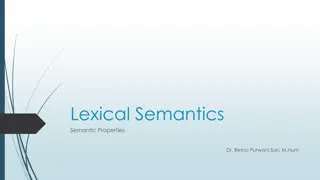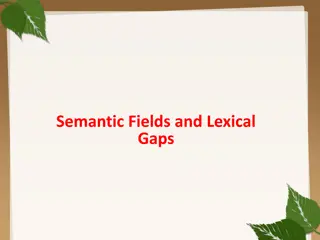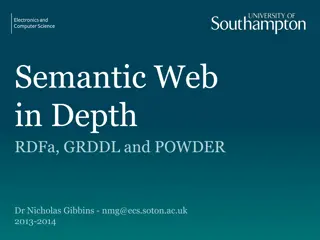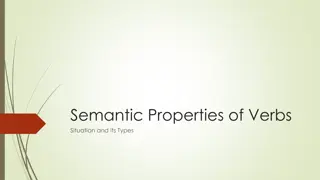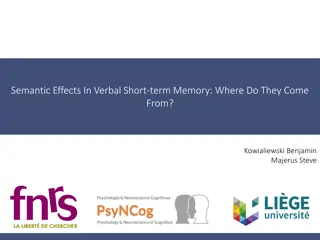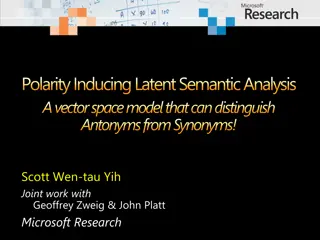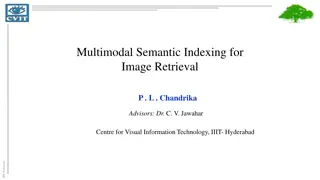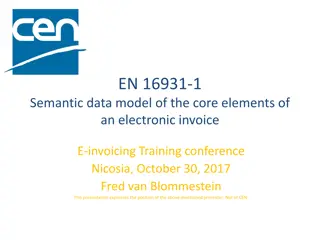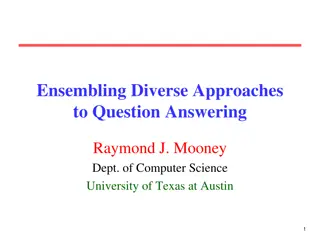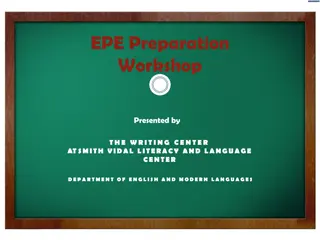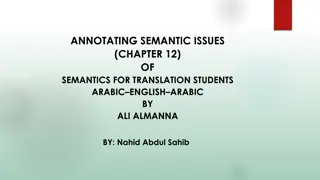Analyzing Moran's Use of Semantic Field in Relation to David Bowie
Moran's article about David Bowie delves into the semantic field of space, exploring contrasting imagery and the impact of Bowie's music on a vast audience. The use of adjectives and the tone of admiration towards Bowie are analyzed, showcasing the depth of emotion and appreciation in the writer's portrayal of the artist.
Download Presentation

Please find below an Image/Link to download the presentation.
The content on the website is provided AS IS for your information and personal use only. It may not be sold, licensed, or shared on other websites without obtaining consent from the author.If you encounter any issues during the download, it is possible that the publisher has removed the file from their server.
You are allowed to download the files provided on this website for personal or commercial use, subject to the condition that they are used lawfully. All files are the property of their respective owners.
The content on the website is provided AS IS for your information and personal use only. It may not be sold, licensed, or shared on other websites without obtaining consent from the author.
E N D
Presentation Transcript
Feedback Benchmark 4
Find Find the audio version: 'Answering the Language under the Microscope Questions'. Question 1 Listen Listen for 10 mins and then have a go to see if you could develop your point on the semantic field of space on One Drive. Go back to the video and work to the next stopping point on 1b, about 5 minutes in and return to One Drive to do the same but this time on a point that, perhaps, you didn't previously make. Go back
Finish the video and highlight your own answer with AO1 and AO3 and re- upload it, with your target for this question at the bottom. Homework
Moran also uses the semantic field of space in her article about David Bowie. She begins with a vivid description of space and time and how it is endless , empty , black and cold . These adjectives all have a negative tone and black and cold could carry connotations of death. This bleak feeling is then violently contrasted with the following imagery. The writer continues with the theme of space to describe how the music can be heard from outer space itself and in a million bedrooms on tinny transistor radios which emphases the vast magnitude of the world s population that was affected by his music. The alliteration tinny transistor contrasts with this theme of vast space by highlighting that just a small object can allow access to something much more significant. Contrasting Bowie s music in this way could be representative of the artist himself, a seemingly insignificant ginger, bonk-eyed outsider but with an ability to influence the whole of our lucky planet . Model answers created by you!
The writers use of adjectives is also interesting. For example, when she uses the list, that itchy, awful, brilliant desire . The adjectives itchy and awful which have connotations of unpleasantness listed together with the adjective brilliant which is almost an antonym, creates an oxymoronic effect which emphasises how fanatical this desire was and how enthusiastic she feels about it. The use of the determiner that again creates the sense of personalisation, as if this was a universally felt feeling. When describing David Bowie s appearance the writer uses the list a ginger, bonk-eyed, snaggle-toothed bisexual in a dress . The adjectives bonk and snaggle almost sound like nonsense words and stand out from the rest of the fairly formal text, written standard English which could highlight the way Bowie stood out as an artist. Although initially this description may seem offensive, it is used ironically and is contextually in keeping with the light-hearted tone of the text, an attempt at humour, in an article that is glorifying him and his work. This gratitude and admiration is highlighted towards the end of the text where is reads Thank you, you beautiful man . Here she is directly addressing him, despite knowing that he will not respond which creates a sense of closure and overall acceptance for her and likely the audience too, that he is dead. This finishes the article in a happier tone as despite the energy source in the black emptiness of space being extinguished , there are still clear positive lasting memories of him.
Hyperbole is another technique that Moran uses to emphasise the control Bowie had over his fans. The producer uses the hyperbole you will simply not exist to describe what will happen if one doesn t act bold like Bowie. This is just one example of Moran s amplified claims of the power Bowie had. By directly addressing the audience with the pronoun you the producer tries to create a relationship with receivers on-masse, she attempts to unite all those that lived through Bowies prime by reminding and over-emphasising them of the impact he had on their behaviour. Later in the text Moran also writes in reference to Bowie, they rewire our brains this idiomatic expression is effective in presenting how Bowie was non- conforming to societal norms and the drastic impact this had on his followers, claiming that Bowie had such an impact he physically altered his fans biology.
unlike other celebrities. Moran does this by consecutively listing modifiers that are overtly visually stimulating. The producer describes him as a ginger, bonk-eyed, snaggle-toothed bisexual in a dress by using these traditionally derogatory descriptions Moran may be endeavouring to ground Bowie and remind the receiver how he represented a lot of, often under- represented, minorities. The adjectival phrase snaggle-toothed is particularly interesting because it clearly has connotations of an unwanted attribute. The producer uses such decidedly unattractive imagery to present Bowie as refreshing to the receiver because mainstream celebrities are often viewed as perfect. Furthermore by using left- branching pre-modifiers, before the main clause, the producer highlights
Despite antimetabole being used previously to create a sense of confusion, it is used again towards the end of the article to create a sense of calm. we were the ones who had David Bowie. And he had us . This change in word order and use of simple sentence generates rhythm and a sense of simplicity, as the text draws to a close and recognises that the artist has died. The use of syndetic listing is also used again towards the end of the article where it reads a currency, or a medicine or a city . This repetition of the conjunction or creates a lengthy compound sentence in list form, leaving the reader little time to pause, which emphasises just how widespread, significant and astonishing Bowie s work was.
The use of short simple clauses in sequence almost creates the sense of increasing noise which is emphasised by the use of anaphora, our planet , our country , our time that almost allows the audience to read each clause in an increased volume, which is appropriate as the context is moving closer towards the Earth where the sound is louder. This may be a technique to uplift and create a sense of unity and commonality when the audience may be feeling sad about Bowie s passing. In the following syndetic listing and the next, and the next , the repetition almost resonates which emphasises the generations that Bowie s music will impact.
Targets 1 2 3 4 Ensure 1a and 1b features are appropriate. Use the camera lens idea to discuss patterns and then zoom in. Use terminology and examples throughout, not just three! Develop your evaluation as much as possible, aiming to be tentative and perceptive.


